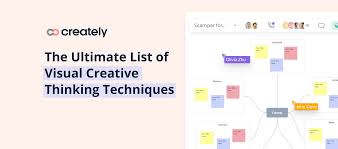The Art of Mastering Techniques
Techniques are the building blocks of mastery in any field. Whether it’s art, sports, cooking, or any other discipline, honing specific techniques is essential for achieving excellence. Let’s delve into the world of advanced techniques and explore how they can elevate your skills to new heights.
Understanding the Importance of Techniques
Techniques encompass a set of methods, procedures, or practices that are systematically employed to achieve a desired outcome. They provide a structured approach to problem-solving and enable individuals to perform tasks efficiently and effectively.
Mastering Complex Techniques
Advanced techniques often require a combination of knowledge, practice, and creativity. By mastering complex techniques, individuals can push the boundaries of what is possible within their chosen field. This level of expertise sets them apart as innovators and leaders in their respective industries.
Continuous Learning and Improvement
Learning advanced techniques is an ongoing process that requires dedication and perseverance. It involves studying from experts, practicing consistently, seeking feedback, and adapting to new challenges. Continuous learning and improvement are key components of mastering advanced techniques.
The Intersection of Science and Art
Many advanced techniques blur the lines between science and art. For example, in fields such as digital design or medical surgery, practitioners must combine technical precision with creative expression to achieve optimal results. This fusion of logic and creativity results in groundbreaking innovations that shape the future.
Embracing Innovation
In today’s rapidly evolving world, embracing innovation is crucial for staying ahead of the curve. Advanced techniques often involve adopting new technologies, methodologies, or approaches to solve complex problems. By embracing innovation, individuals can unlock new possibilities and revolutionize their craft.
Conclusion
Advanced techniques represent the pinnacle of skill development in any field. By understanding their importance, mastering complex methods, continuously learning and improving, embracing innovation, and blending science with artistry, individuals can elevate their craft to unprecedented levels of excellence.
Mastering Techniques: 6 Tips for Skill Improvement and Growth
- Practice regularly to improve your skills.
- Break down complex techniques into smaller, manageable steps.
- Seek feedback from others to identify areas for improvement.
- Watch tutorials or attend workshops to learn new techniques.
- Stay patient and persistent when mastering a new technique.
- Experiment with different approaches to find what works best for you.
Practice regularly to improve your skills.
Regular practice is a fundamental tip when it comes to enhancing your skills through techniques. Consistent practice not only helps you master the intricacies of different methods but also builds muscle memory and improves your overall proficiency. By dedicating time each day to practice, you can refine your techniques, identify areas for improvement, and steadily progress towards mastery. Remember, practice is the key to unlocking your full potential and achieving excellence in any endeavor that requires honing specific techniques.
Break down complex techniques into smaller, manageable steps.
Breaking down complex techniques into smaller, manageable steps is a valuable tip that can significantly enhance the learning process and mastery of a skill. By deconstructing intricate methods into more digestible components, individuals can approach each step with focus and clarity, leading to a deeper understanding of the overall technique. This approach not only makes the learning process less overwhelming but also allows for incremental progress and improvement. By mastering each smaller step, individuals can gradually build their confidence and competence, ultimately paving the way for successfully mastering the complex technique as a whole.
Seek feedback from others to identify areas for improvement.
Seeking feedback from others is a valuable tip when it comes to mastering techniques. External perspectives can provide insights that may not be apparent when practicing alone. By soliciting feedback, individuals can identify areas for improvement, gain new perspectives, and refine their skills more effectively. Constructive criticism and feedback from mentors, peers, or experts can offer valuable guidance on how to enhance techniques, address weaknesses, and ultimately reach higher levels of proficiency in their chosen field.
Watch tutorials or attend workshops to learn new techniques.
To expand your skill set and stay current in your field, consider watching tutorials or attending workshops to learn new techniques. Tutorials provide step-by-step guidance and insights from experts, allowing you to grasp complex methods more effectively. Workshops offer hands-on experience and the opportunity to interact with professionals and peers, enhancing your understanding and proficiency in applying new techniques. By actively seeking out learning opportunities, you can continuously improve your abilities and broaden your knowledge base, ultimately advancing your expertise in your chosen discipline.
Stay patient and persistent when mastering a new technique.
When endeavoring to master a new technique, it is crucial to maintain patience and persistence throughout the learning process. Rome was not built in a day, and similarly, acquiring proficiency in a new skill takes time and dedication. By staying patient and persistent, one can navigate through challenges, setbacks, and frustrations with resilience and determination. Embracing a mindset of continuous improvement and unwavering commitment to honing the craft will ultimately lead to mastery of the technique and unlock new levels of expertise.
Experiment with different approaches to find what works best for you.
Experimenting with different approaches is a valuable tip when it comes to mastering techniques. By exploring various methods and strategies, individuals can discover what resonates most with their unique style and preferences. This process of trial and error not only helps in identifying the most effective techniques but also fosters creativity and innovation. Embracing experimentation allows individuals to adapt and evolve, ultimately leading to personal growth and expertise in their chosen field.

No Responses